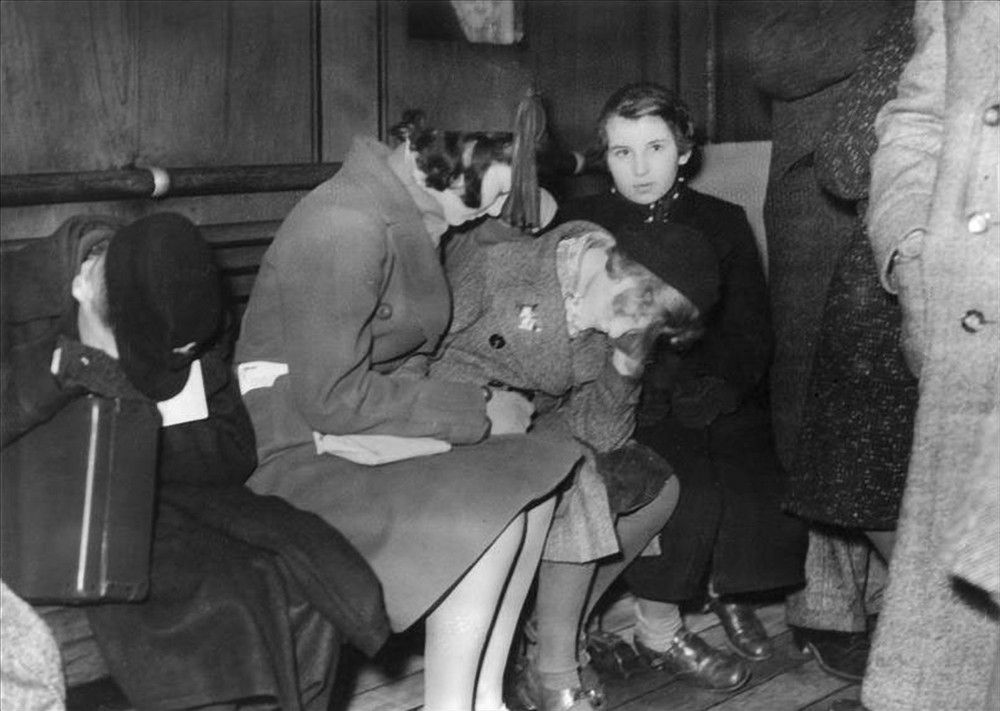Kindertransport – uncomfortable truths at heart of heroic wartime scheme

On the 85th anniversary of the Kindertransport scheme, an Aberystwyth University academic reveals a darker side to the feel-good wartime success story in a new book.
On 2 December 1938, the first Kindertransport train arrived in Harwich in Essex, bringing 196 Jewish refugees from Berlin.
Over the ten-month period that followed, around 10,000 Jewish child refugees were rescued via Kindertransport. Most would never see their parents again, many of whom were murdered during the Holocaust.
The rescue effort of children took place during the nine months prior to the outbreak of the Second World War with children from Germany, Austria, Czechoslovakia, Poland, and the Free City of Danzig placed in foster homes, hostels, schools, and farms across the UK.
Professor Andrea Hammel’s new book, ‘Kindertransport – What Really Happened’, suggests that although the Kindertransport scheme is often viewed as a positive example of the UK’s humanitarian and altruistic attitude towards refugees in the past, in reality its legacy should be viewed through a more critical lens.
Generous
Professor Hammel, Director of the Centre for the Movement of People at Aberystwyth University, said: “Traditionally, the Kindertransport has been remembered as a generous government-led scheme – a heroic rescue achieved against the odds. Extensive research over the last two decades, however, suggests that the legacy of the Kindertransport should be seen in a more critical light.
“From an organisational and financial point of view, the scheme was poorly resourced by the British government, which was responding to pressure from the public horrified by what was unfolding under the German Reich. Indeed, the Kindertransport scheme relied on charitable donations and volunteers.
“The British government also only relaxed visa rules for children – it refused to admit the child refugees’ parents, who would have competed for jobs at a time of high unemployment amongst British workers.
“The selection criteria did not prioritise the most urgent cases either, but those who were likely to make the best contribution to society. And some children and young people were placed in unsuitable homes, sometimes with terrible consequences.
“There is much that history can teach us about historical treatment of refugees, which could make life easier for children fleeing conflict today, and it’s important that we are realistic about the success but also the shortcomings of the Kindertransport.”
Refugees
Professor Hammel has previously led a project on Refugees from National Socialism in Wales: Learning from the Past for the Future which involved co-curators who are refugees from Syria, Afghanistan and Kuwait resulting in an exhibition which has been showing at Aberystwyth, the Senedd, the Houses of Parliament and in Bangor.
As well as ‘Kindertransport – What Really Happened’ she is also the author of ‘Finding Refuge: Stories of the men, women and children who fled to Wales to escape the Nazis’ (Honno, 2022).
She has also co-written two reports on Adverse Childhood Experiences and Child Refugees of the 1930s which were presented to the Welsh Government.
‘Kindertransport – What Really Happened’ by Professor Andrea Hammel is published by Polity Books and is available to buy here..
Support our Nation today
For the price of a cup of coffee a month you can help us create an independent, not-for-profit, national news service for the people of Wales, by the people of Wales.







I was a refugee from Vienna in 1938 when I was two years old but was fortunate enough to come with my parents and grandparents to Derry in NI. We moved to Cardiff when I was twelve and I graduated from UCNW, Bangor before emigrating to the US.
The people who helped refugees deserve gratitude while the politicians who did not want to use tax money to support them quite understandably wanted to prioritize the needs of the many poor people in the UK.
I think you’re giving too much credit to uk politicians as they’ve done the least they can get away with, historically as well as nowadays, while “bigging-up” themselves for the little they do as if no other country does as much – usually the exact opposite is true!